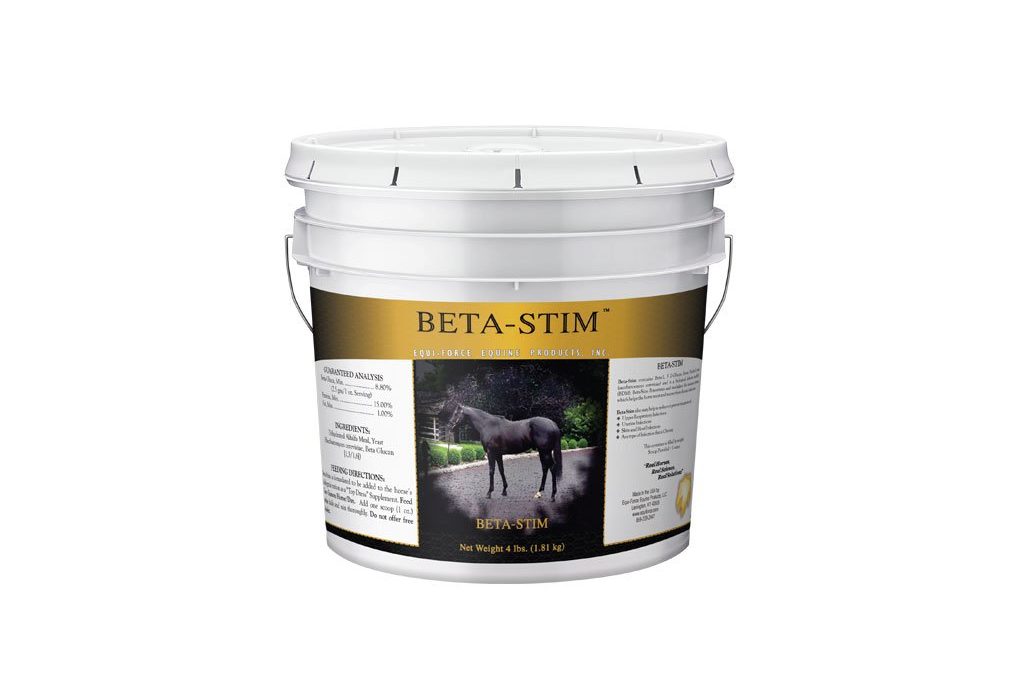Supporting the Equine Immune System – Beta-Stim™
From time to time all horses can benefit from an immune boost and Beta-Stim™, a novel and unique equine immune supplement, is effective at helping the horse fend off bacterial and viral infection when exposure occurs.
Beta-Stim™ contains Beta-1,3/1,6 D-glucan (also known as Beta Glucan) from purified yeast (Saccharomyces cerevisiae) which is clinically proven to activate the immune system by stimulating production and activation of macrophages, the natural pathogen scavenger in the horse. As an equine immune cell stimulant, Beta-Stim™ gives the horse the ability to fend off infections before they become established, without the need for pharmacological agents.
The effects of Beta-Glucan in the horse have been studied in clinical research trials, for example:
- In a study done by Dr. Alison Kate Painter at Blue Spruce Farms, 17 pregnant mares were fed a diet containing Beta-1,3/1,6 D-glucan for 6 months and 23 were fed a control feed. Blood was obtained from all foals and levels of IgG were determined. The study found higher serum IgG levels in the foals whose dam was fed a Beta Glucan enriched diet than those who were not and an improved condition as well as resistance to infections due to lower neonatal diarrhea rates.
- In a study looking at the effect of Beta Glucan on antibody vaccine titers in horses, horses were vaccinated with a killed Rhinopneumonitis vaccine and fed a control diet or a diet that had supplemental Beta Glucan (350 mg/day/horse). Horses fed the diet with Beta Glucan showed an increase in antibody titers.
By stimulating the immune system to fight off foreign pathogens, Beta-Stim™ is very effective for:
- Reducing the incidence of respiratory infections
- Fungal infections
- Skin and hoof infections
- Any type of chronic infection that is unresponsive to traditional treatments
For situations in which your horse’s immune system needs a boost, be sure to keep Beta-Stim™ in mind, in conjunction with other measures that promote and maintain a healthy equine immune system.
This blog post was originally posted on Monday, July 2nd, 2012 at Equine Nutrition and Health Services Blog. Blog article was re-posted with permission from blog owner, all rights reserved.

